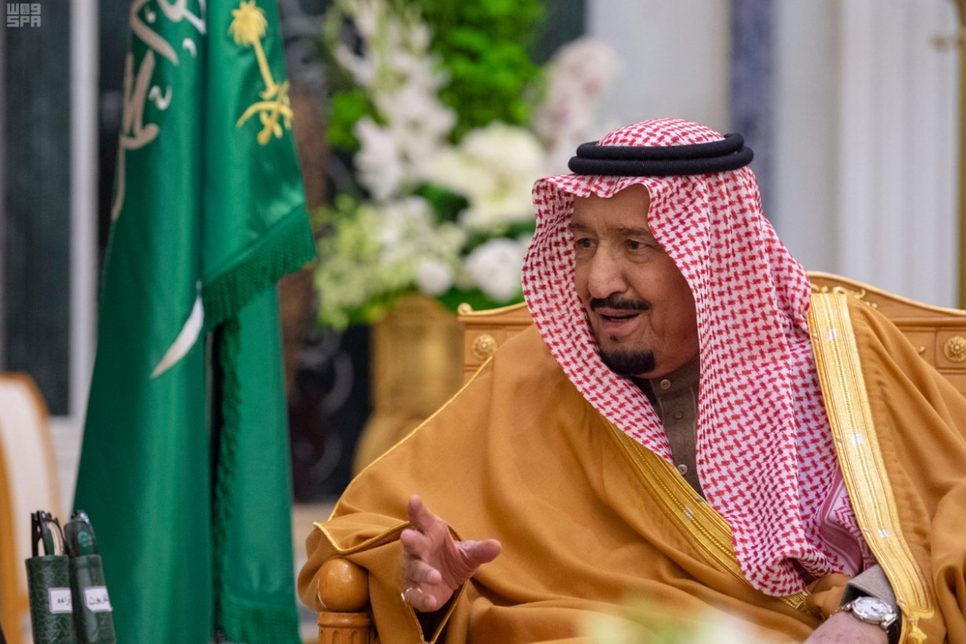A final deal to end the three-year-long blockade is expected to be signed at the gathering of regional leaders to be held in Riyadh.
Saudi Arabia’s King Salman Al Saud instructed the Secretary General of the Gulf Cooperation Council to formally invite all leaders of the organisation to attend the 41st annual summit.
The highly anticipated meeting is set to take place in the kingdom’s capital, Riyadh on January 5th, after the location was moved from Manama amid talks to end the GCC crisis.
“The commitment by Gulf leaders to hold the summit on an annual basis, and especially in these exceptional times, is a testament to the strength of the GCC, to their belief in their duty to the people of the Gulf, and their devotion to increasing cooperation and integration among member countries,” said Nayef Falah Al-Hajraf, Secretary-General of the GCC in a press release.
“The institution’s mission to facilitate trade and economic integration among member states is more relevant than at any time in its history. The GCC remains focused on meeting the ambitions of the Gulf people, increasing integration, interconnectedness, and trade among member states and the international community.”
Potential end of the GCC crisis

On the geopolitical side, the Gulf countries are reported to be getting ready to finalise an agreement that would put an end to the illegal blockade on Qatar, Kuwaiti media reported earlier this month.
According to a senior official, negotiations are ongoing with the aim of reaching a final settlement at the 41st GCC Summit, when all countries are expected to meet.
Read more: Saudi Arabia pushing for Gulf breakthrough ahead of GCC Summit.
Another source also told Reuters that the anticipated deal “could result in a set of principles for negotiations or a more concrete move involving reopening airspace to Qatar as a show of good faith”.
“The Saudis are keen to demonstrate to Biden that they are peacemakers and open to dialogue,” a foreign diplomat in the GCC region told Reuters.
Recent breakthrough

December has also witnessed a series of announcements of a potential breakthrough in the crisis, which was triggered in 2017 when Saudi Arabia, the UAE, Bahrain, and Egypt imposed an illegal air, land and sea blockade on Qatar and falsely accused it of supporting terrorism.
Qatar has vehemently and consistently denied the charges.
On December 8, and after a long silence despite Saudi and Kuwaiti talks, Egypt and the UAE officials welcomed the new efforts to end the dispute.
In a post on his official Facebook page, Cairo’s Ministry of Foreign Affairs’ spokesperson, Ahmed Hafez, expressed his country’s appreciation towards Kuwait’s “continuous” efforts towards resolving the ongoing Gulf dispute between Qatar and its neighbours.
The UAE’s Minister of State for Foreign Affairs Anwar Gargash also tweeted that his government “valued the efforts made by Kuwait and the US towards increasing unity within the Arabian Gulf”.
In addition, Manama’s Supreme Defence Council, led by King Hamad bin Isa Al Khalifa, called for a need “to end regional conflicts and disputes by peaceful means,” the state news agency said last Wednesday.
Read also: Bahrain ends weeks-long silence, welcomes dialogue to end GCC rift.
However, escalations between Bahrain and Qatar remain evident. Shortly after Bahraini vessels trespassed into Qatar’s territorial waters, Doha filed a complaint to the United Nations [UN] regarding a December 9 breach of its airspace by four Bahraini fighter jets.
Bahraini officials called the claims “irresponsible and baseless.”
COVID-19
During the upcoming summit— the six countries, Saudi Arabia, United Arab Emirates, Bahrain, Oman, Qatar and Kuwait—are also expected to discuss ways to overcome the impact of COVID-19 and proposals to revive the economies.
Follow Doha News on Twitter, Instagram, Facebook and Youtube







